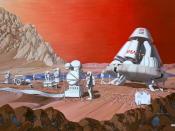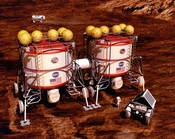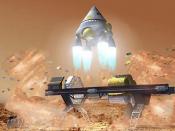When John F. Kennedy gave his now famous speech regarding going to the Moon, he said, "We choose to go to the moon in this decade and do the other things, not because they are easy, but because they are hard, because that goal will ... measure the best of our energies and skills, because that challenge is one ... we are unwilling to postpone, and one which we intend to win." (3). As a result of this speech, NASA was assigned its first long-term, manned mission. When NASA succeeded in this goal by landing on the moon in 1969, it was at its height in popularity. The entire nation was in awe of the accomplishment. However, ever since that time, NASA has continued to lose significance in the public's eye. The main reason for this is because NASA has not embarked on any great missions. Because of this, NASA should begin working towards a manned mission to Mars.
There are many arguments one could make in opposition to this proposal, including questions regarding cost, risk and importance. When Michael Duke, a scientist involved in planning robotic missions to Mars, says that "it is no longer considered sufficient to propose human exploration based on excitement," he shows why robotic missions to Mars might be supported over manned missions. (Portree 2). It is far more costly to send humans to Mars than it is to send robots. The main reasons for this are because robots do not need to return to Earth and robots do not require food or water. Also, robots don't experience as much risk during space travel as humans. If human beings travel to Mars, they would have to deal with relatively small amounts of gravity for extended periods of time, try to keep away from significant...



Mars - The Next Step in Manned Space Exploration.
Overall splendid but u might want to cut down on your opinions in the body..
1 out of 3 people found this comment useful.